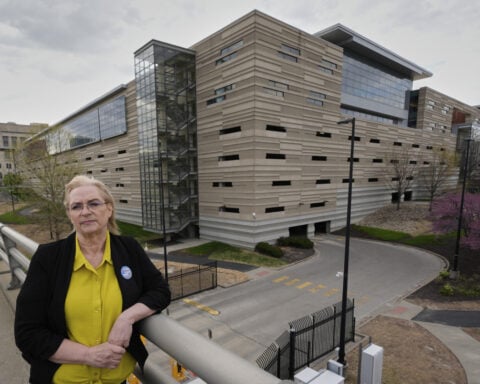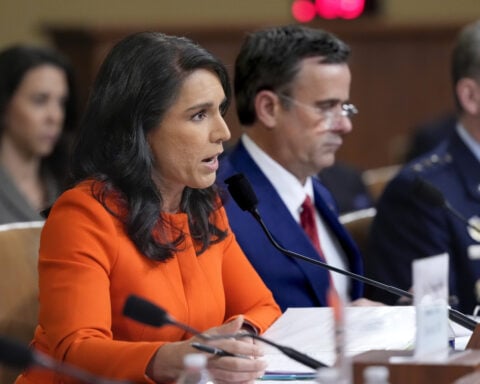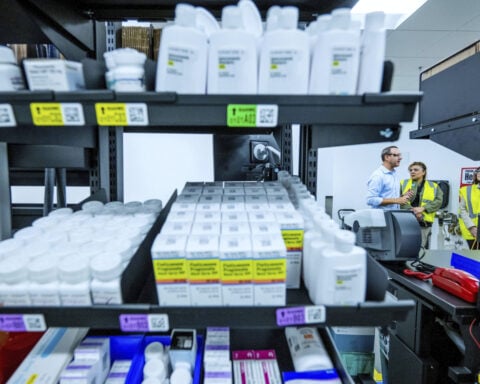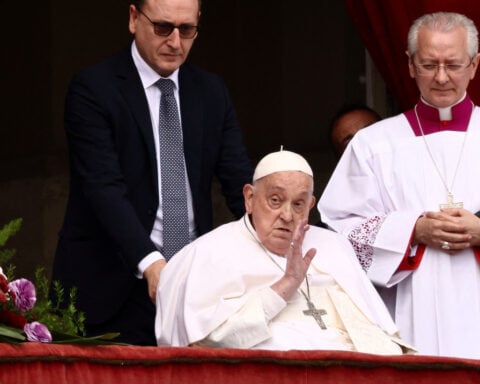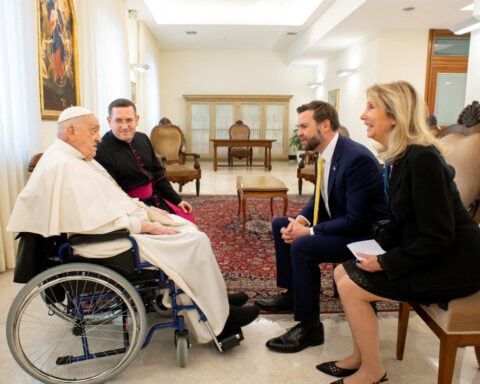Washington, DC (CNN) — Meta CEO Mark Zuckerberg took the witness stand Monday to defend his company against accusations by the Federal Trade Commission that it bought competing social media companies to dominate the market with a monopoly.
It was the first of what is expected to be two days of testimony for Zuckerberg, who will seek to explain two of his company’s most important acquisitions, Instagram and WhatsApp.
And although Zuckerberg is no stranger to defending his company, the stakes in this case may be higher than ever before. If the FTC wins, Meta could be forced to break itself apart and spin off WhatsApp and Instagram, which would upend the company’s core digital advertising business and reshape the broader social media ecosystem.
Meta relies on the 3.3 billion daily users it claims across its platforms as one of the core selling points of its ad business, which last year alone raked in more than $160 billion in revenue.
But the government argued repeatedly in opening statements that Meta’s large user base reflected not simple success, but a lack of choice, saying that “consumers do not have reasonable alternatives” to Meta’s platforms. Lawyers for Meta argued that its platforms have plenty of competition in the social media space and that regulators approved the purchases years ago when they were made.
The FTC, however, argued that the acquisitions were intended to prevent Meta from having to compete with nascent, would-be challengers by buying them instead. One email dating to 2011 from Zuckerberg to Facebook executives detailed the company’s reasoning for buying Instagram, relating to the company’s stalled efforts to develop an app called Facebook Camera.
“in the time it has taken us to get our act together on this, Instagram has become a large and viable competitor to us on mobile photos, which will increasingly be the future of photos,” Zuckerberg wrote at the time. The company ended up acquiring Instagram in April 2012.
The FTC questioned Zuckerberg about the transformation of Facebook from a platform designed to facilitate connections between friends and family to one focused more on showing users interesting third-party content, including the launch of features like the news feed and groups.
“It’s the case that over time, the ‘interest’ part of that has gotten built out more than the ‘friend’ part,” Zuckerberg said. “(Users are) connected to a lot more groups and other kinds of things. The ‘friend’ part has gone down quite a bit, but it’s still something we care about.”
A large portion of Zuckerberg’s testimony, however, focused on the messaging features built into many of Meta’s platforms, from Facebook to Instagram to WhatsApp, which could be key to how the FTC defines the “market” Meta dominates with its platforms.
Zuckerberg said that messaging is “symbiotic” to Facebook’s larger offerings, as it allows users to share content they find with friends, after the FTC attorney asked if Zuckerberg considered messaging to be a “complement” to the platform’s core services.
Separately, Zuckerberg conceded that in one 2022 email exchange with Chief Product Officer Chris Cox and Facebook President Tom Alison, he was, as FTC attorney Daniel Matheson put it, “discussing strategies that Meta might employ to ensure there’s a vision for Facebook in light of concern for cultural relevance,” — a reference to Facebook’s declining popularity compared to Instagram and third-party platforms like TikTok.
“That’s generally a good summary,” Zuckerberg said.
–This story has been updated with additional details and context.
The-CNN-Wire
™ & © 2025 Cable News Network, Inc., a Warner Bros. Discovery Company. All rights reserved.

 Trump has begun another trade war. Here's a timeline of how we got here
Trump has begun another trade war. Here's a timeline of how we got here
 Canada's leader laments lost friendship with US in town that sheltered stranded Americans after 9/11
Canada's leader laments lost friendship with US in town that sheltered stranded Americans after 9/11
 Chinese EV giant BYD's fourth-quarter profit leaps 73%
Chinese EV giant BYD's fourth-quarter profit leaps 73%
 You're an American in another land? Prepare to talk about the why and how of Trump 2.0
You're an American in another land? Prepare to talk about the why and how of Trump 2.0
 Chalk talk: Star power, top teams and No. 5 seeds headline the women's March Madness Sweet 16
Chalk talk: Star power, top teams and No. 5 seeds headline the women's March Madness Sweet 16
 Purdue returns to Sweet 16 with 76-62 win over McNeese in March Madness
Purdue returns to Sweet 16 with 76-62 win over McNeese in March Madness
